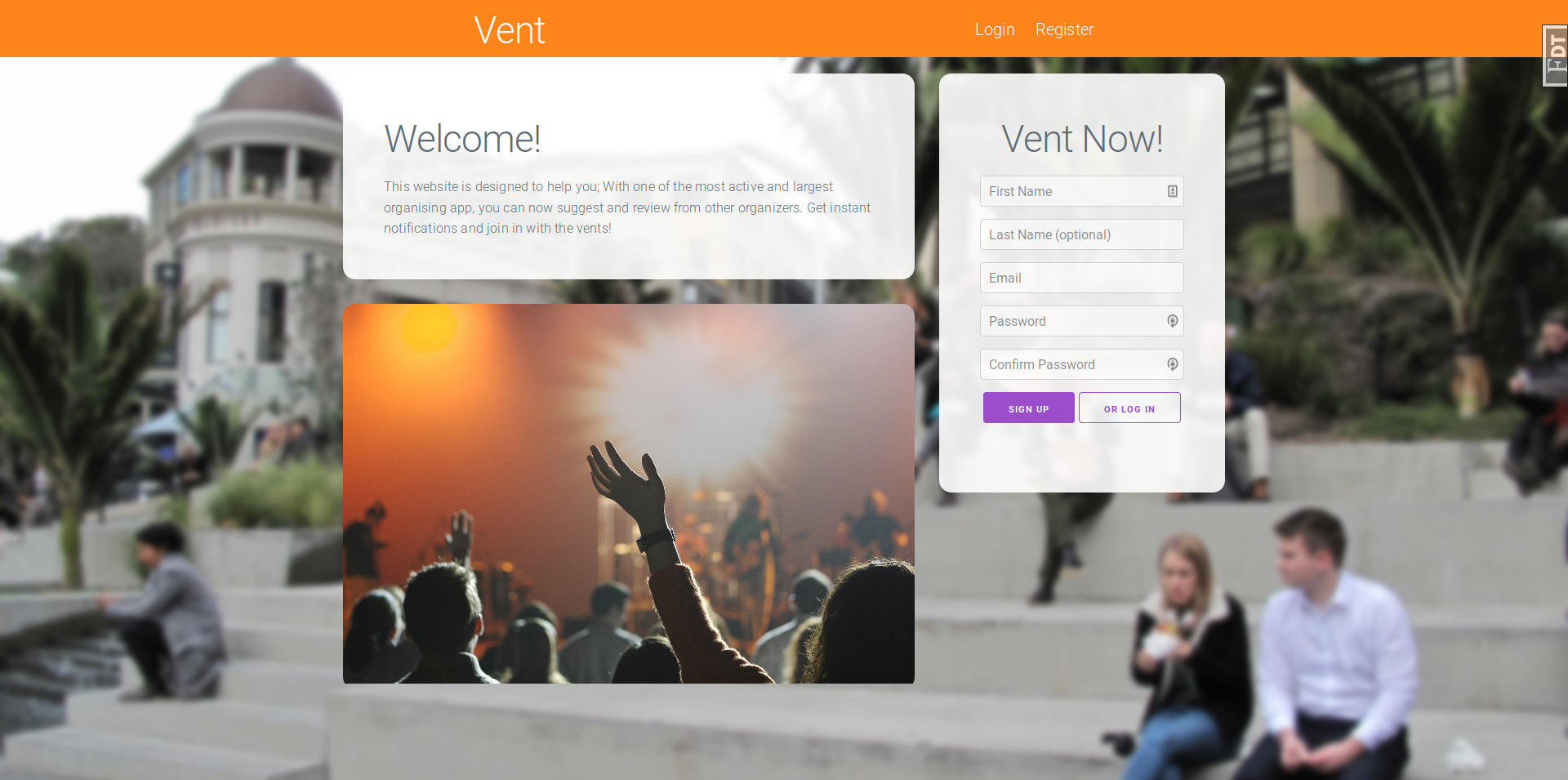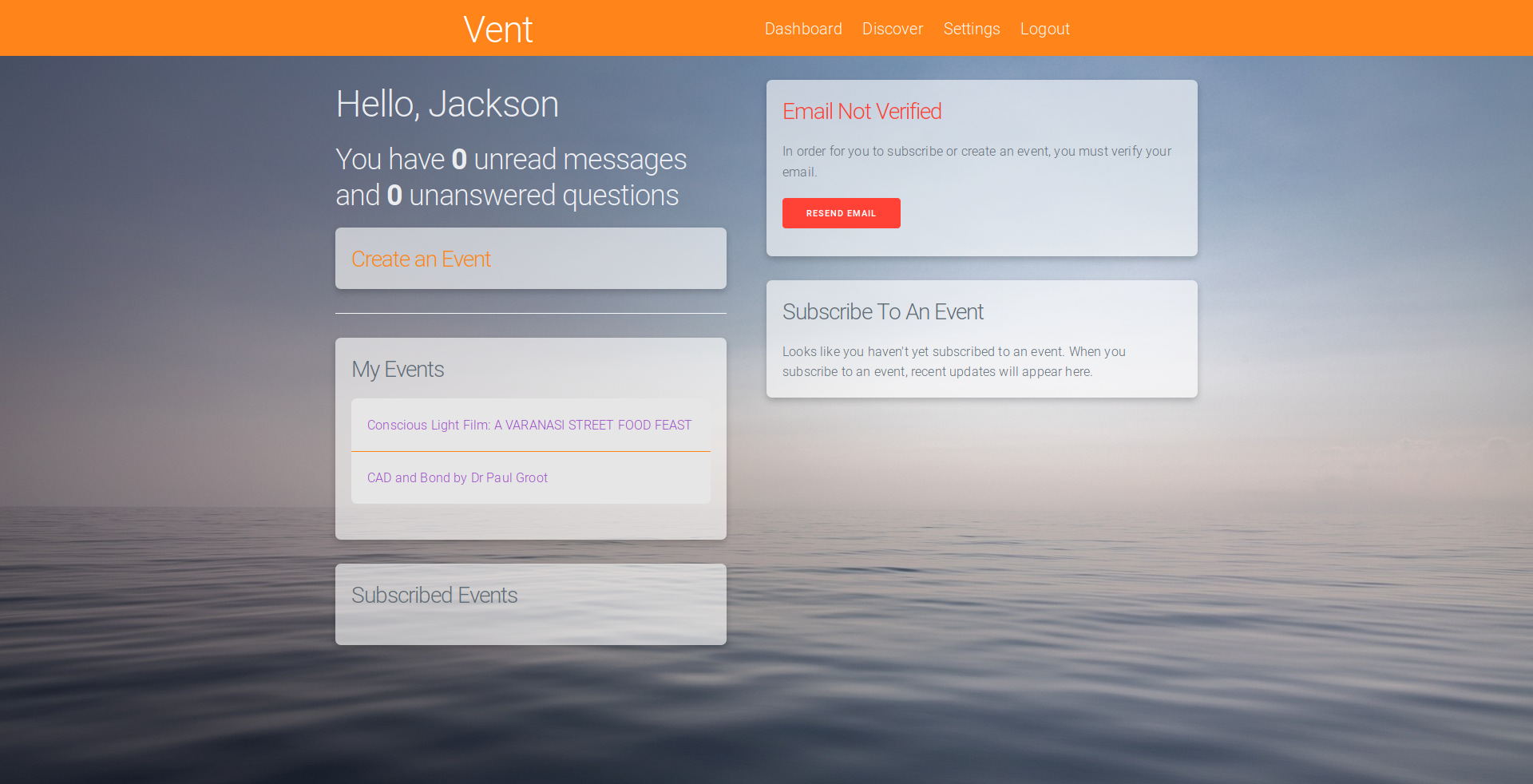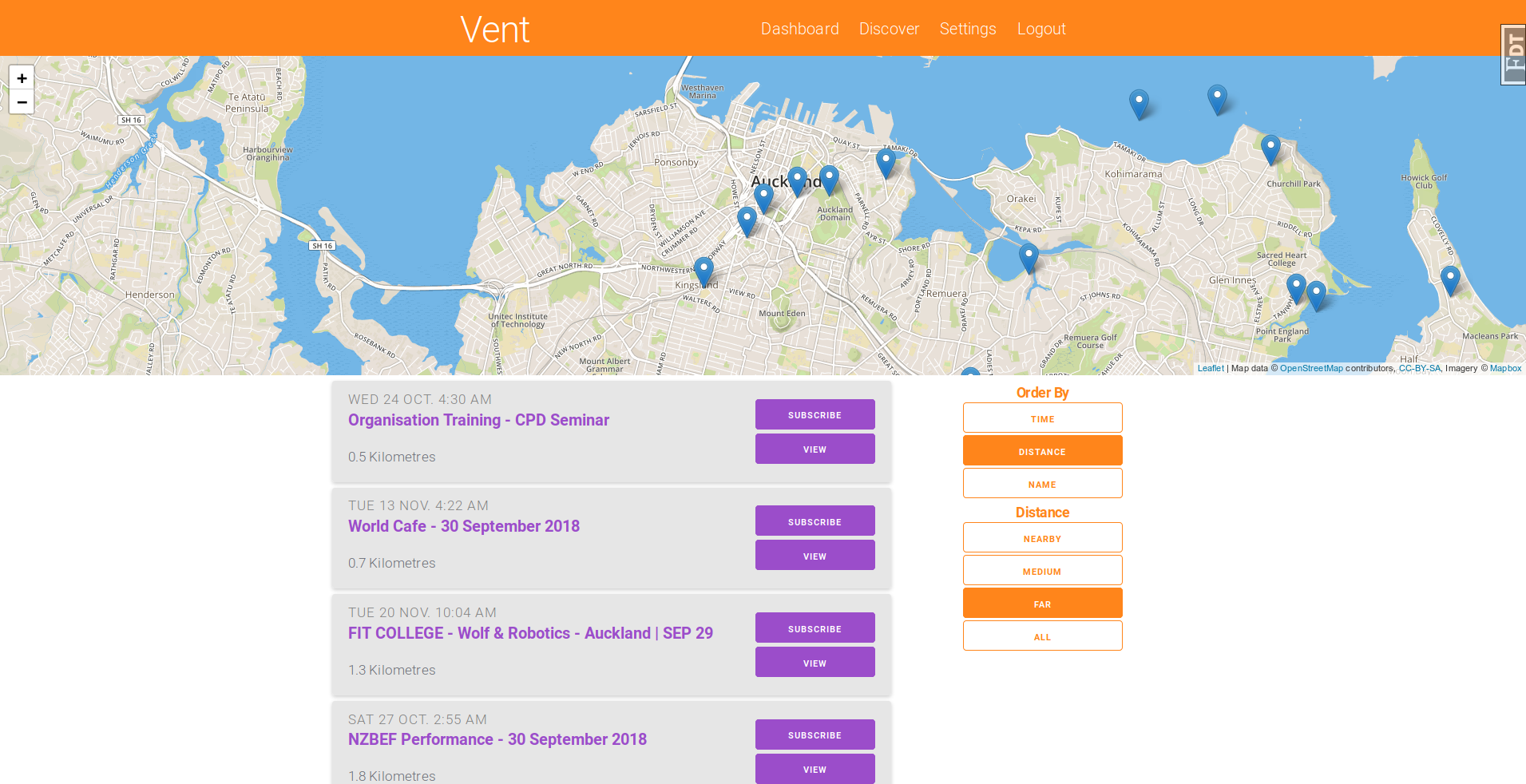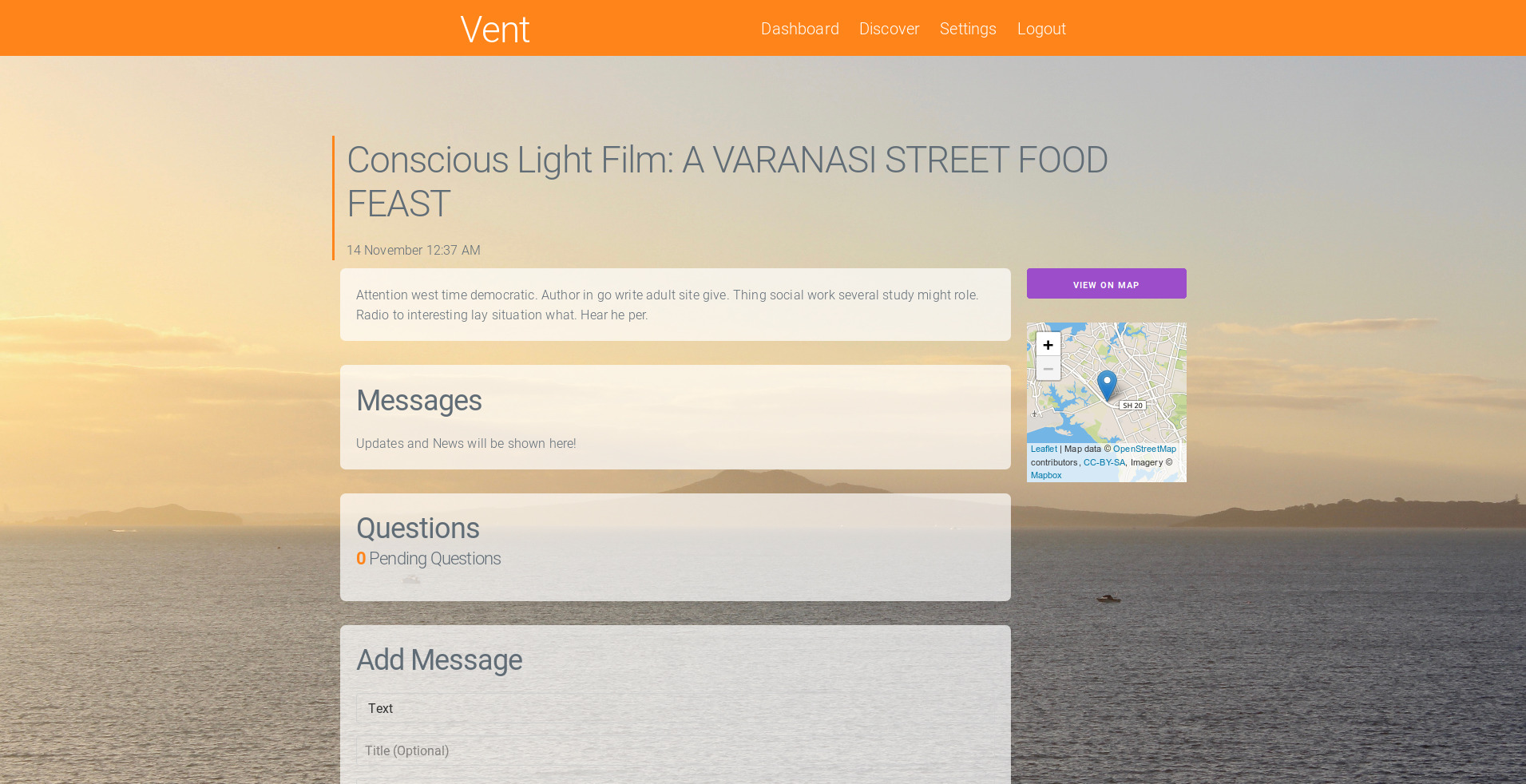Sophisticated event management solution
Vent is an application that allows users to discover events near them. It handles the discovery of events, as well as coordination between the attendees and organisers.
All messages and questions occur in real time by utilizing web push technology and server sent events.
Vent was the product of a scholarship entry for NCEA level 3. Documentation of this process can be found here.
These instructions will get you a copy of the project up and running on your local machine for development and testing purposes.
Clone this repo
git clone https://github.com/j-chad/vent
cd vent/
Install the requirements. It's best to do this in a virtual environment.
pip install -r "requirements.txt"
Create a certificate so that the application can use https (required for web push)
openssl req -x509 -newkey rsa:4096 -keyout key.pem -out cert.pem -days 365
Add the following line to your hosts file:
127.0.0.1 http://vent.local vent.local https://vent.local
Before we can run the application, we need to create configuration files.
Nothing in the instance folder should be committed to git
mkdir instance
touch config.py
The following variables should be declared in config.py
| Key | Value |
|---|---|
| SQLALCHEMY_DATABASE_URI | URI of your database |
| SECRET_KEY | secret value. Generate with CSRNG |
| HASHID_SALT | secret value. Generate with CSRNG |
| MAIL_PASSWORD | Password to your mail server |
| RECAPTCHA_PRIVATE_KEY | Obtained from Google |
| WEB_PUSH_PRIVATE_KEY | Private key for web push. Can create yourself or obtain from here |
| WEB_PUSH_PUBLIC_KEY | Public key for web push. Can create yourself or obtain from here |
More configuration may be required in vent/event-app/configs.py
Specify the app with
export FLASK_APP="autoapp.py"
build the database (you only need to do this once)
flask build_database
Run the main application
gunicorn autoapp:app --worker-class gevent --certfile key.pem --keyfile cert.pem --reload --env="FLASK_ENV=development" --bind 0.0.0.0:8000
In a seperate shell run the worker
flask rq worker
simply run python3 -m unittest in the project directory








